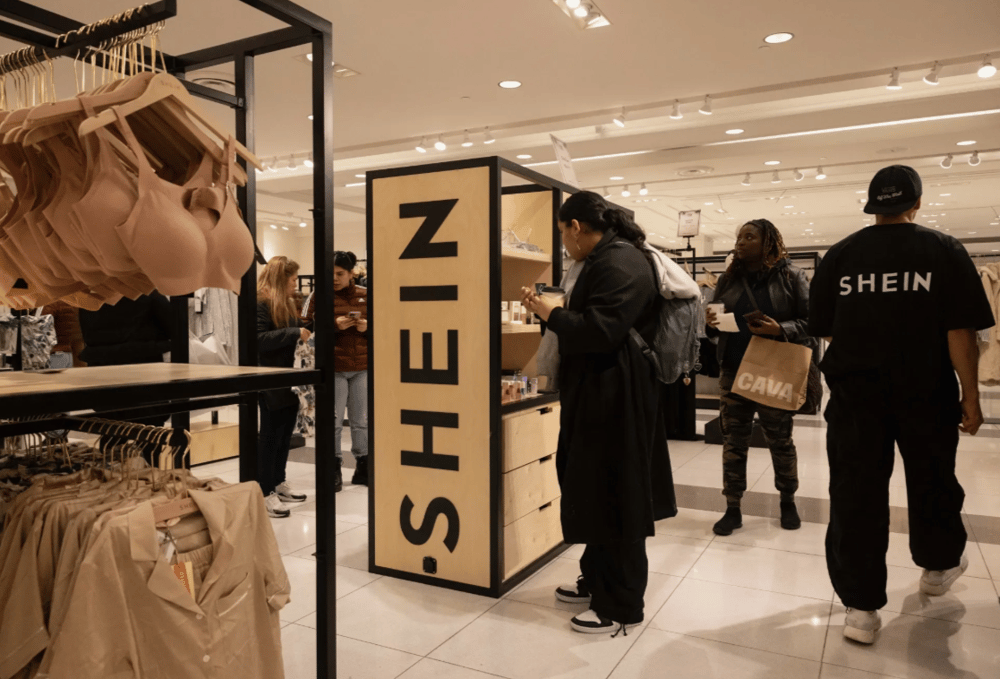Shein Targets Hong Kong IPO to Sidestep Supply Chain Scrutiny and Tap Asian Capital
Shein, the global fast-fashion e-commerce giant, is planning to list its shares in Hong Kong, redirecting its IPO ambitions from London after reportedly failing to secure approval from China's securities regulators. This shift reflects a calculated effort to reduce geopolitical risk and avoid the heightened scrutiny that Western markets are placing on supply chain transparency and ethical sourcing.
Headquartered in Singapore, Shein is positioning itself to tap Asian institutional capital, particularly from mainland China and emerging market investors, where regulatory and ESG expectations differ markedly from those in Europe and the U.S.
Market Implications and Strategic Rationale
Shein’s pivot to a Hong Kong listing represents a strategic recalibration of its capital market entry. While London offered global investor access, it also came with ESG-related hurdles. Allegations of labor rights violations in Chinese supplier factories have subjected Shein to intense Western media and regulatory scrutiny.
By shifting to Hong Kong, Shein may benefit from:
Proximity to major Chinese capital pools;
A regulatory environment that is less aggressive on environmental, social, and governance (ESG) disclosure;
A smoother approval process influenced by Beijing’s strategic priorities.
Hong Kong's capital market, though less liquid than U.S. or U.K. exchanges, remains a vital gateway for mainland Chinese investors operating under Qualified Domestic Institutional Investor (QDII) programs. This gives Shein access to funding without facing politically sensitive questions in the West.

Shein’s IPO Strategy Shift
🛍️ Company: Shein, a fast-growing e-commerce fashion retailer
🌏 Headquarters: Singapore, operational ties to China
📉 Original Plan: IPO in London — blocked by Chinese regulators
📈 Current Strategy: Seek listing on the Hong Kong Stock Exchange (HKEX)
🌐 Rationale: Avoid ESG scrutiny, access Chinese capital, reduce geopolitical friction
🧵 Controversy: Allegations over labor practices and supply chain opacity
💰 Market Goal: Tap Asian and EM investor demand for fast-fashion growth
Investor Sentiment and Regulatory Landscape
Shein’s move is being closely watched by institutional investors and private equity backers, including Sequoia Capital China and Tiger Global, who seek liquidity events amid turbulent tech valuations. A Hong Kong IPO may not offer the valuation premium of a Western listing but is perceived as a more politically viable path to public markets.
Regulators in Hong Kong maintain oversight aligned with China’s Cyberspace Administration (CAC) and CSRC, but with fewer barriers around ESG due diligence compared to London’s Financial Conduct Authority (FCA). This makes it an attractive listing venue for firms with sensitive geopolitical profiles.
Additionally, Hong Kong listings remain attractive for fast-scaling digital businesses looking to list close to their core supplier base, workforce, and customer geography, while preserving access to global capital via the Stock Connect program linking HKEX with Shanghai and Shenzhen.

Key Developments — Shein’s IPO Path in Numbers
IPO Shift: Redirected listing from London to Hong Kong
Chinese Approval: Failed to secure CSRC clearance for a foreign IPO
Capital Access: Aims to attract capital from Asia and emerging markets
Geopolitical Risk: London listing blocked amid labor and transparency concerns
Supply Chain: Ongoing criticism over labor conditions in Chinese factories
Valuation Strategy: Seeking public valuation without intense Western ESG exposure
Strategic Realignment with Market and Political Realities
Shein’s decision to pursue a Hong Kong IPO is a telling example of how geopolitical tensions, regulatory differences, and investor perception shape corporate listing strategies. By moving away from Western capital markets, Shein avoids a potentially damaging public spotlight on its supply chain, while leveraging its proximity to China’s financial ecosystem.
This approach signals a growing trend among Asia-linked multinationals: prioritize capital access and regulatory pragmatism over Western validation. For Shein, success in Hong Kong could provide both the funding and legitimacy required to maintain its rapid global expansion — albeit with less scrutiny over how its products are made.















Comments
The long-term impact may position automation as the central pillar of competitive advantage in tech
This kind of acquisition marks a turning point for automation-focused innovation in the tech sector